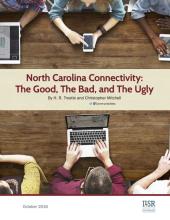Bring The Story Of Wilson And Pinetops To Your Community
The future of high-quality Internet access in Pinetops, North Carolina, is precarious. Nearby Wilson’s municipal fiber network, Greenlight, provides gigabit connectivity for now, but a series of federal level decisions could change the situation at any moment. Now the story of these two communities and their fight for local telecommunications authority has come to life in the film Do Not Pass Go. Local communities can schedule a screening of the documentary. Watch the trailer below.
A Story Worth Telling
Cullen Hoback’s film tells the story that made national news and that we’ve shared as events unfolded.
Wilson, North Carolina’s municipal Fiber-to-the-Home (FTTH) network has benefitted residents, businesses, and institutions in Wilson since 2008. Neighboring rural towns, including Pinetops, had asked Wilson to expand in order to obtain better Internet access but state law precluded Wilson from serving beyond county borders.
When Chattanooga decided to challenge Tennessee’s law that had a similar effect, Wilson joined the motion to the FCC in 2015. The Commission struck down both laws and Wilson took the opportunity to expand service to Pinetops, the small mountain town of about 1,400 people. Pinetops businesses and residents immediately felt the improvement with FTTH. They experienced economic development opportunities and municipal facilities functioned more efficiently.






